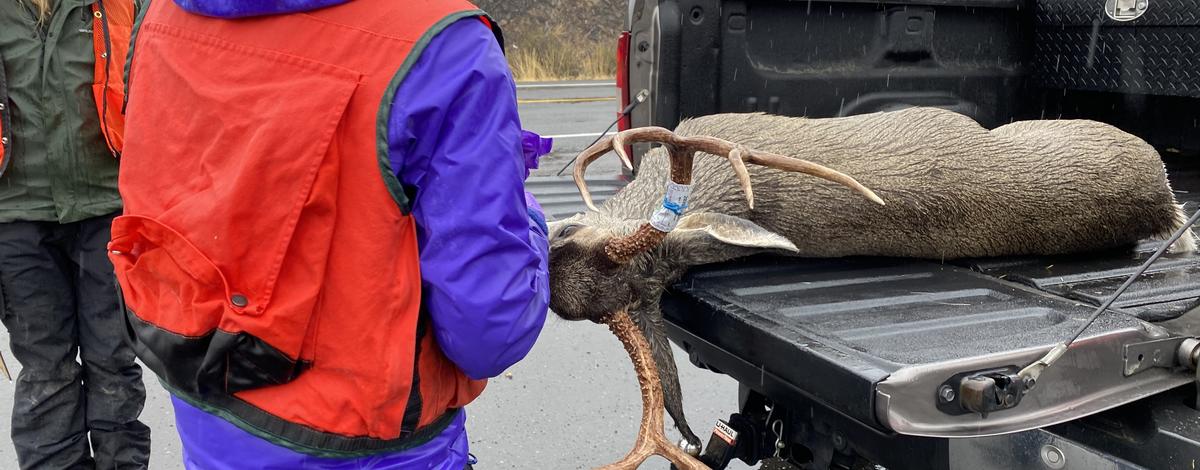With most hunting seasons already underway and many more to begin in the weeks and months ahead, Idaho Fish and Game is reminding hunters that we need your help monitoring for chronic wasting disease in Idaho.

How you can get involved
Fish and Game staff will be collecting samples from deer, elk and moose at hunter check stations around the Panhandle this weekend as part of a statewide surveillance program for CWD.
Check stations will be operated Oct. 16-17 from 10 a.m. to sunset. Check stations will be located near Enaville on the North Fork Coeur d’Alene River and east of St. Maries.
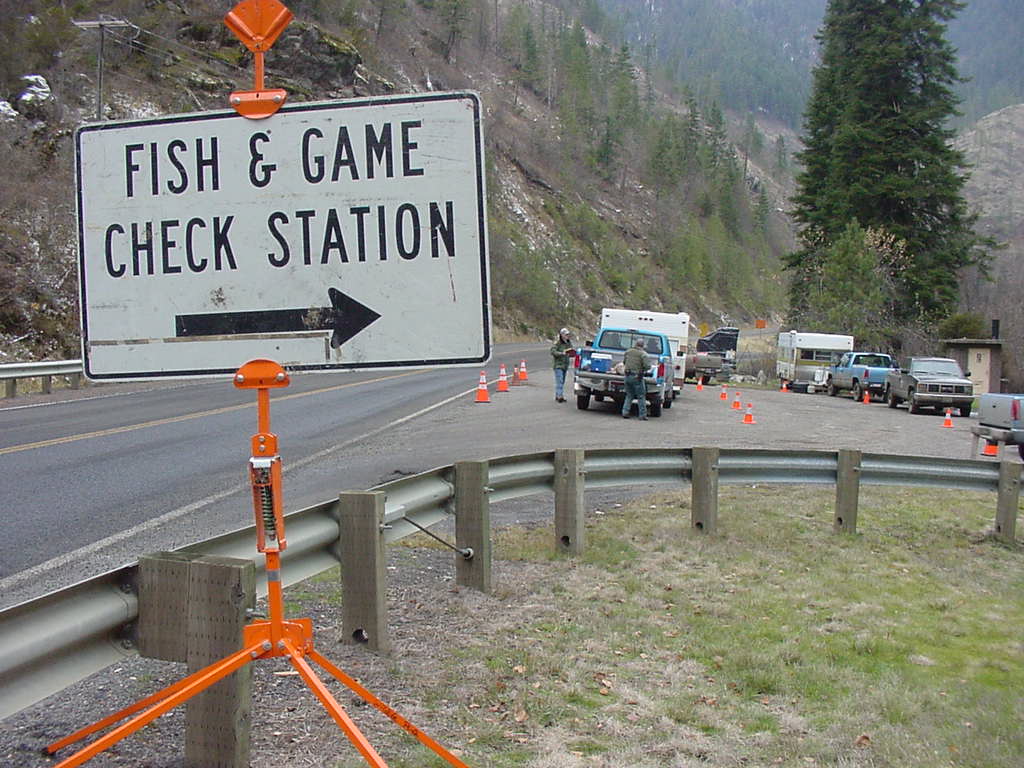
Fish and Game is also encouraging hunters to collect and submit their own CWD samples or whole deer heads.
Samples or heads can be placed into several freezers located across the region. Each freezer has instructions attached to it and information tags to be filled out for each head or sample. Please keep all samples cool or frozen until transferred to a freezer.
CWD sample kits can be requested directly from Fish and Game by emailing your mailing address to: wildlifelab@idfg.idaho.gov
Panhandle freezers are located at:
- Bonners Ferry: Far North Outfitters, 6791 S Main Street
- Sagle: WaterLife Discovery Center, 1591 Lakeshore Drive
- Plummer: Heyburn State Park, 57 Chatcolet Road (pictured below)
- Kingston: Kwikstop Gas Station, 123 Stemm Loop
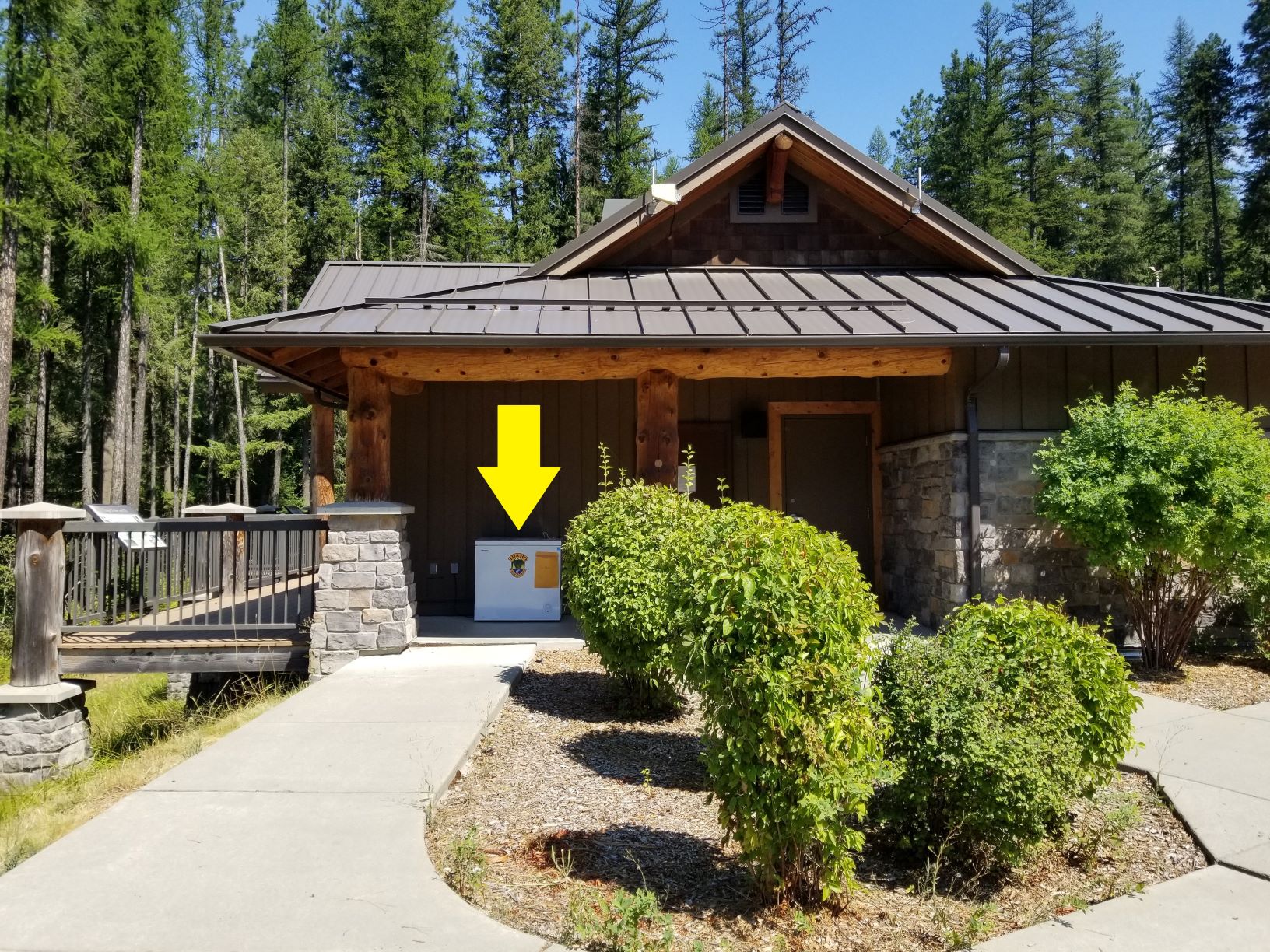
Hunters can also bring samples or deer, elk and moose heads into the Panhandle Regional Office at 2885 W Kathleen Avenue, Coeur d’Alene from 8 a.m. to 5 p.m., Monday through Friday.
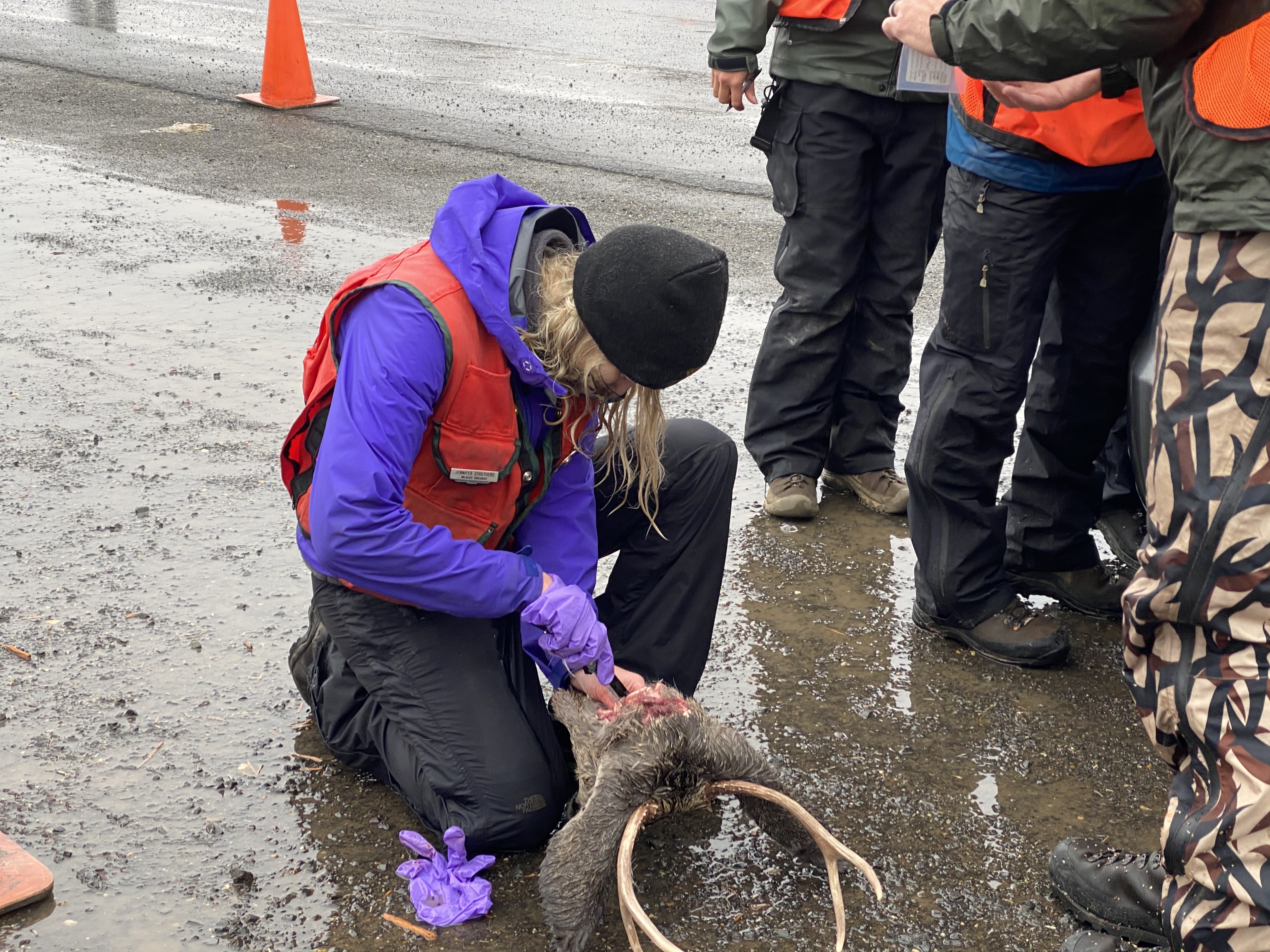
For more information on sampling locations across the state or to learn how to collect your own sample, use the links below.
- CWD Sampling Locations
- Learn how to collect a sample for CWD testing
- CWD sample collection, with pictures
Testing for CWD takes approximately four to six weeks after samples are submitted. For animals sampled at check stations or the regional office, hunters will be given a business card with a unique barcode number on it. This number can then be entered into the Fish and Game sample results website where status updates and final testing results will be posted.
Hunters that submit samples at freezer locations throughout the region will only be contacted if a sample is positive.
Can you eat the meat? What does a CWD infected animal look like? Other questions? Check out the links below.
Hunting out of state and wondering what you need to know and what the law says?
Idaho passed a law in 2018 making it illegal to bring any portion of spine, brain and other nervous system tissues of a wild elk, deer, moose or caribou into Idaho from CWD-positive states or provinces in Canada.
Violation of current CWD rules is a misdemeanor. Warnings can be issued at the officer’s discretion, but those cited can incur the following penalties:
- A fine between $25 and $1000
- Up to 3-year suspension of hunting and/or fishing and/or trapping license(s)
- Up to 6 months in jail.
For more: Chronic Wasting Disease: The Rules
More on CWD
Although chronic wasting disease has never been detected in Idaho, the threat of it making it to Idaho is not something to be taken lightly.
Animals with CWD have been documented in Montana, Utah and Wyoming, and infected animals have been found close to the Idaho border. Libby, Montana, which is a short 22 mile jaunt east of the Idaho border, has confirmed white-tailed deer, moose and mule deer with CWD in recent years.
CWD is a threat to Idaho’s big game animals and the hunting opportunities they provide for sportsmen. Fish and Game needs to prevent CWD from entering the state and monitor for it within the state to ensure Idaho’s big game herds remain healthy and capable of providing hunting opportunities for sportsmen.
CWD is a contagious and fatal neurological disease that affects deer, elk and moose in North America. There is no live test or known cure for CWD.
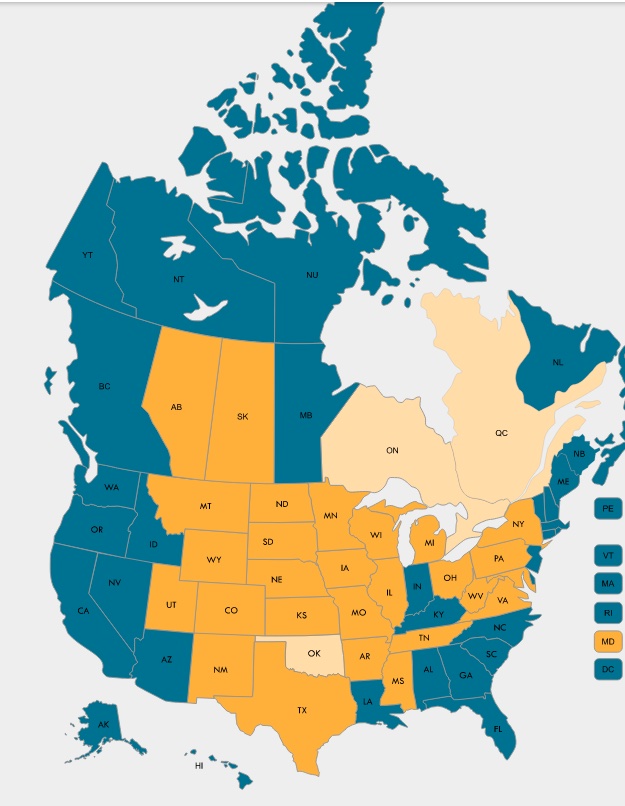
State and provinces in orange and tan have known cases of CWD.
For more information regarding CWD sampling in the Panhandle, please contact the Panhandle Regional office at (208) 769-1414.
You can also follow the Panhandle Region Facebook page to get regular news and updates.

